Plenary Speakers
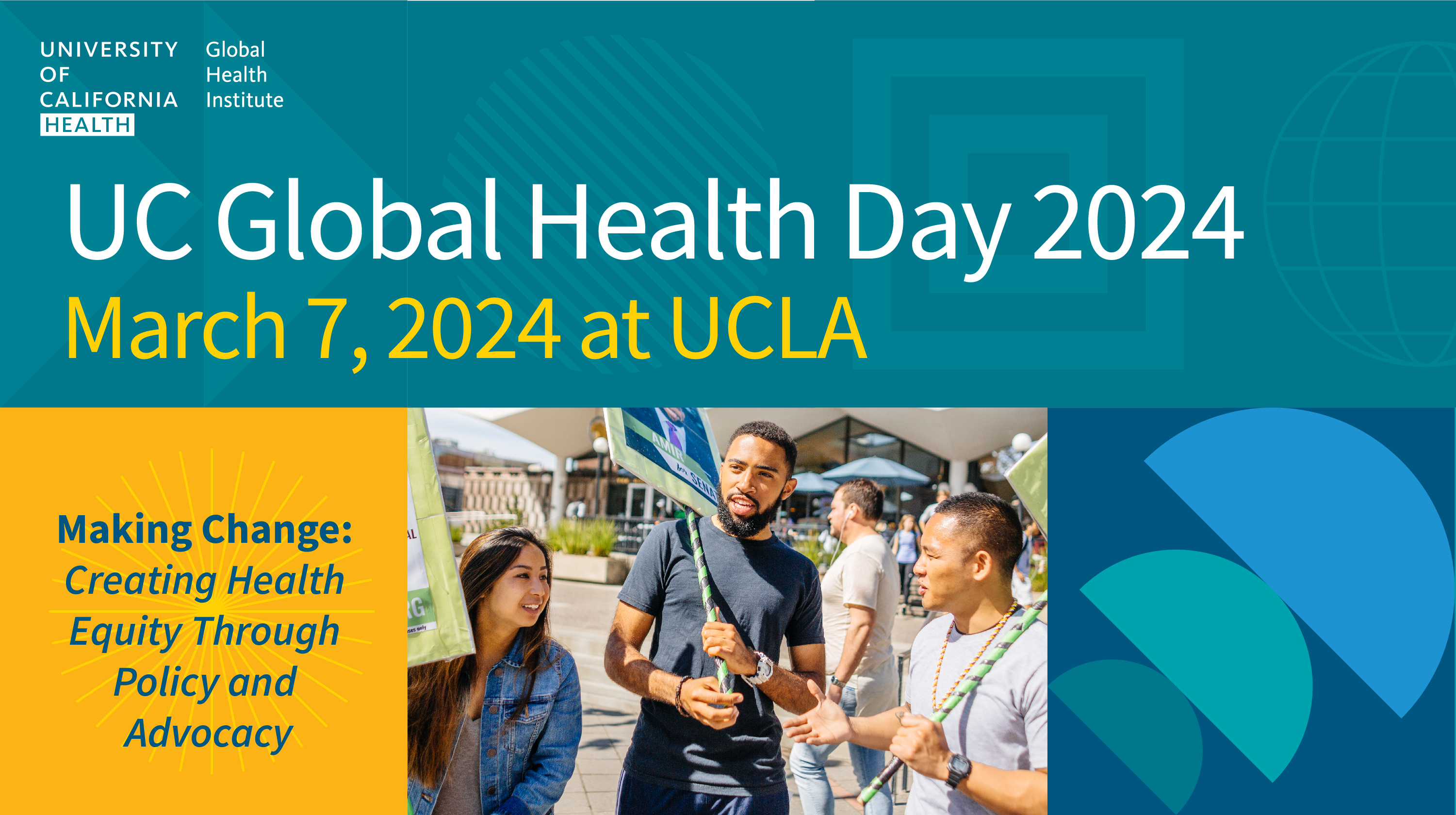
Opening Plenary Speaker
Change Agents Unite! Leveraging Your Skills and Power for Transformation Through Policy & Advocacy
Rohan Radhakrishna, MD, MPH, MS
Chief Equity Officer and Deputy Director of the California Department of Public Health - Office of Health Equity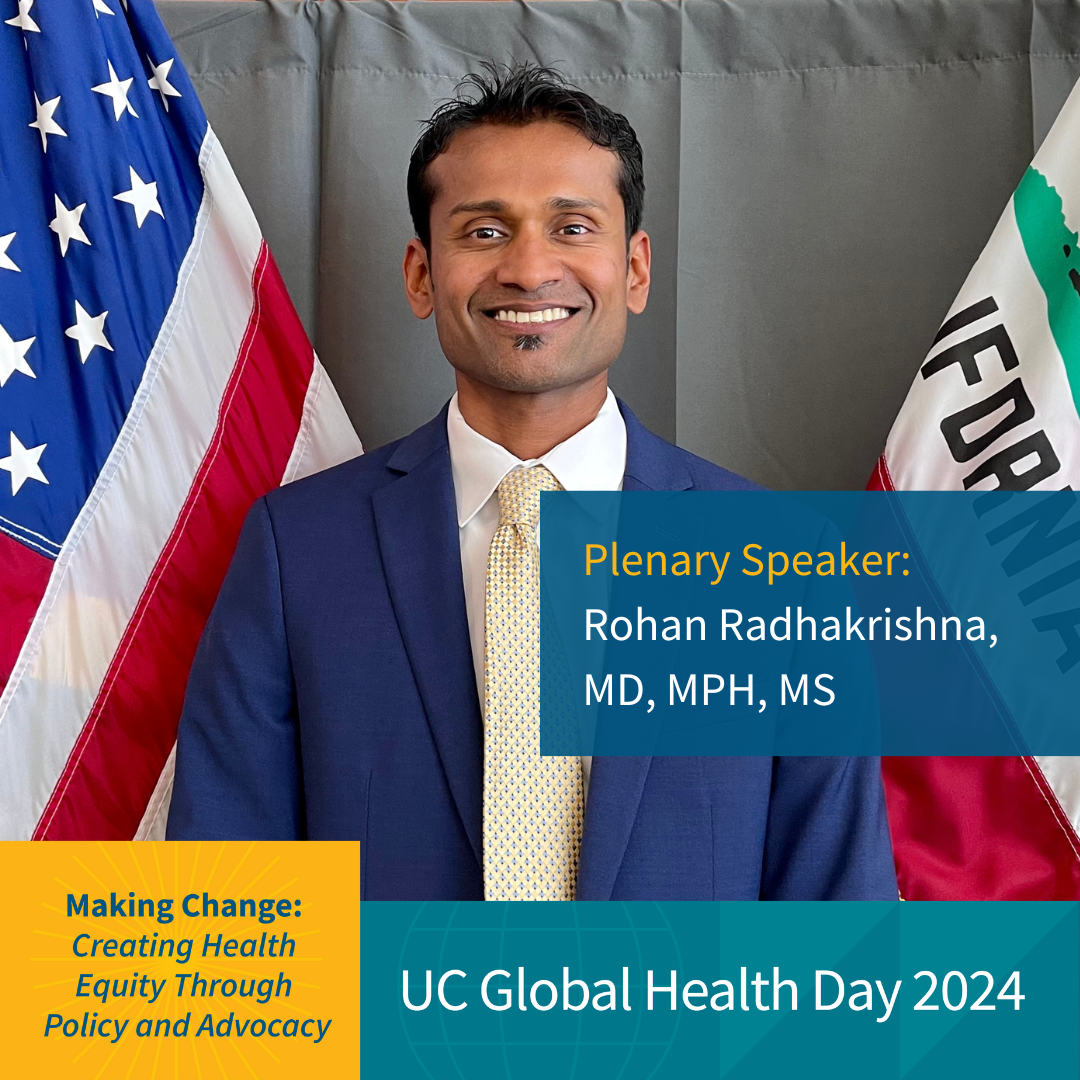
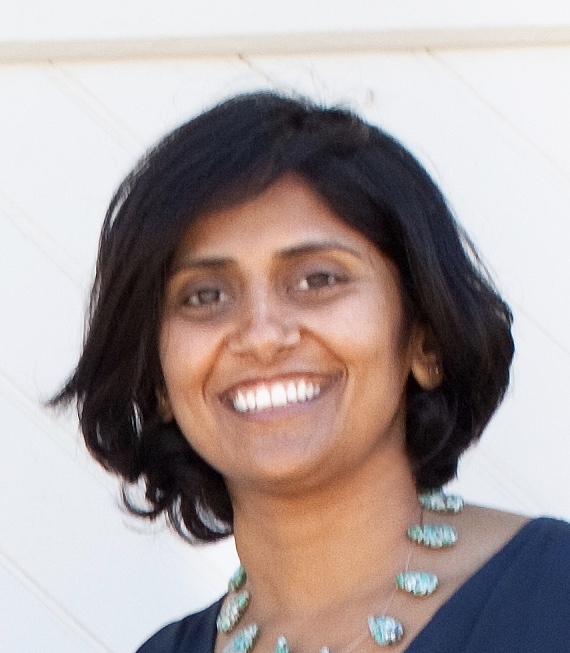
Madhavi Dandu, MD, MPH (Opening Plenary Moderator) is a Professor of Medicine at UCSF. She received her undergraduate degree in Comparative Literature and medical degree from the University of Michigan in Ann Arbor. She completed her residency training in the Categorical Medicine Program at UCSF in 2003. Afterward, Dr. Dandu attended the University of California, Berkeley, and received a Masters in Public Health with a focus on international health and health and human rights. At UCSF, Dr. Dandu spends time in the inpatient clinical services supervising and teaching medical students and residents. Her main non-clinical areas of focus are global health education, curriculum development, and mentorship, especially in the areas of ethics and cultural humility. She has previously directed the Master of Science in Global Health program at UCSF and the Global Health Pathway/Area of Distinction for the Internal Medicine Residency. In addition, she previously co-directed the Global Health Core for the Division of Hospital Medicine and was a senior curriculum adviser for the HEAL Fellowship.
Dr. Dandu continues to pursue her research interests in human rights and global public health. She collaborates with colleagues at UCSF and several community-based organizations to create cultural humility training for public health professionals.
Closing Plenary Speaker
Community Advocacy in Shaping HIV Response and Health Care Access
Frank Mugisha
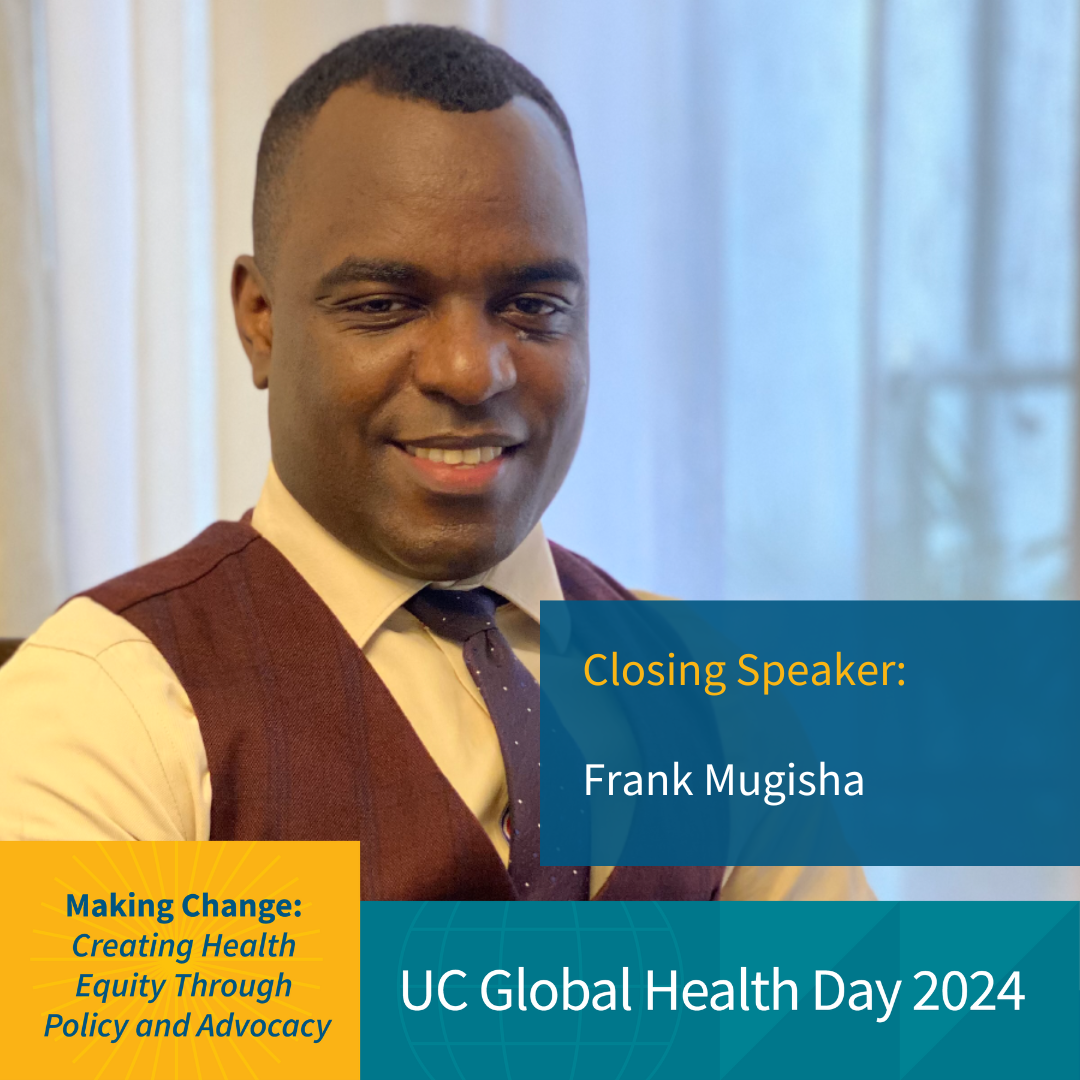
Frank Mugisha is a prominent advocate for the rights of LGBT persons, a respected champion of Human Rights, and an anti-violence advocate. He holds doctors of University from Ghent University in Belgium and Glasgow University in Scotland.
He founded Icebreakers Uganda, an organization created as a support network for LGBTI Ugandans who are out, or in the process of coming out. He is also the Executive Director of Sexual Minorities Uganda (SMUG), SMUG was shut down by the government of Uganda in August 2022. SMUG is the largest and leading organization of the lesbian, gay, bisexual, transgender, and intersex (LGBTI) movement in Uganda. Frank Mugisha sits on the management committee of the Common Wealth Equality Network - TCEN - A network that advocates for LGBTQ rights within the Common Wealth, he is currently the African Regional representative for TCEN. In 2012 he started the first and only LGBT Health Center in Uganda. Frank Mugisha is the team leader at SMUG International. Frank Mugisha is currently a distinguished Fellow at the Institute of Global Politics Columbia - University.
Mugisha’s work has been recognized worldwide, including by the United Nation’s Secretary General Ban Ki-moon, United States former Secretary of State Hillary Clinton and Secretary of State John Kerry. He received the prestigious 2011 Robert F. Kennedy Human Rights Award, the 2011 Rafto Prize for Human Rights in Bergen, Norway. In 2009 and 2014 he was named by Advocate magazine as one of the leading activists “under 40.” In 2013 received The International Human Rights Film Award by Amnesty International, Human Rights Film Network and Cinema for Peace award. In 2012 received the James Earl Hardy Legendary Award And 2011, received Homos hero’s award by the gay and lesbian foundation, and in 2012, he received Special mention by Black Entertainment Television (BET) awards. He has Received Citations and proclamations by the city councils of New York City and Philadelphia. In 2014, he was Nominated for the Noble Peace Prize.
He was listed among the 10 most global influential people by Power #10 in 2014 and received the Joli Humanitarian award 2014 from Riverdale Country School in New York City, where he graces a wall of fame and a building name. In 2012, Mugisha was named to the “Pink List” of most influential international people by the UK’s Independent Magazine, alongside Apple’s CEO Tim Cook, Hip Hop Rapper Frank Ocean and CCN News Anchor Anderson Copper. In 2016 he was named among top 50 world leaders by Fortune magazine. He received the African Feather Award of the year 2020, Best Human Rights Activist in Uganda 2020 Award. Named by Vogue Magazine among the top 7 activists fighting to improve LGBTQ rights in Africa. He has written and contributed for the New York Times, the Guardian and Huffington post and Ugandan Mainstream media. Frank Mugisha is the recipient of the 2022 Human Rights Defenders award from Civil Rights Defenders Sweden.
Frank Mugisha bravely continues to work for the security, equality, and dignity of Uganda’s LGBTI community, despite threats to his life. He has given motivational lectures and talks around the world, and he has met and influenced world leaders, celebrities and influential persons to fight anti-gay legislations in his country. Frank Mugisha is currently fighting the Uganda anti homosexuality bill 2023.
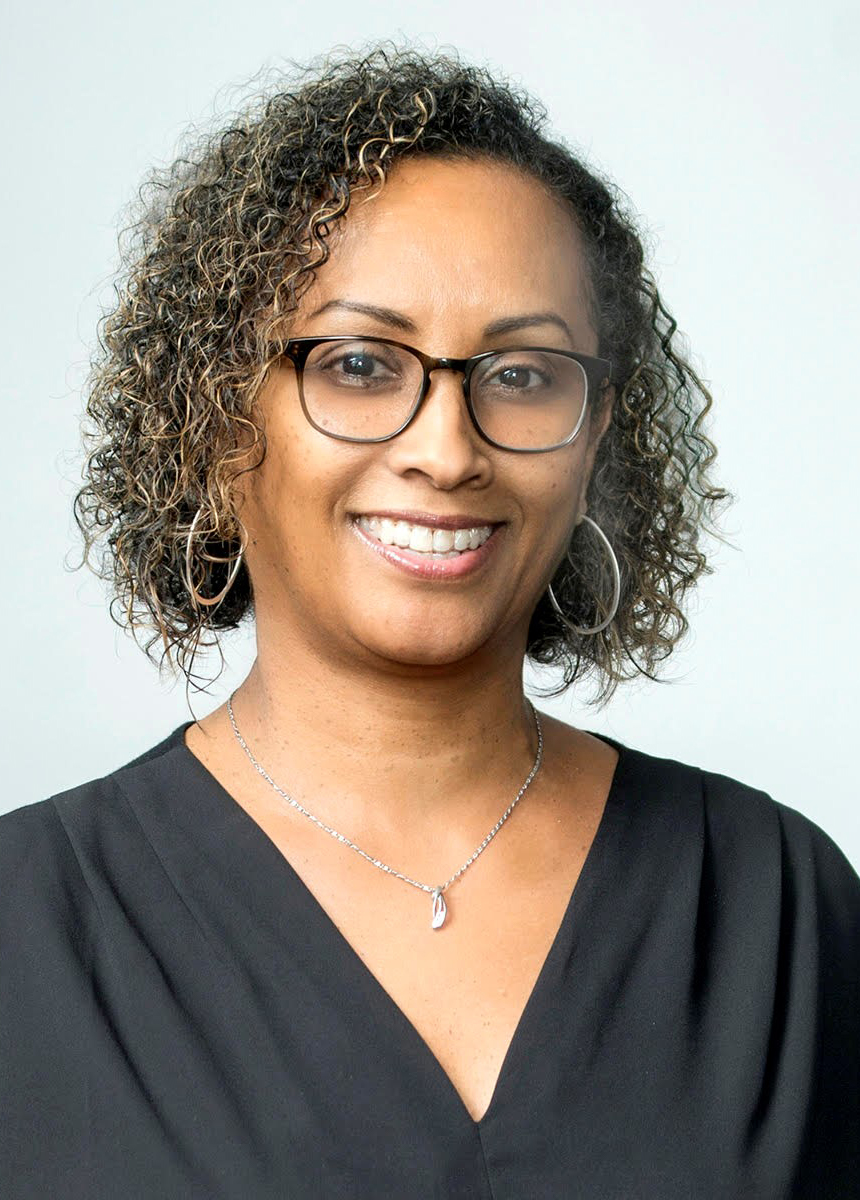 Ndola Prata, MD, MSc (Closing Plenary Moderator), a physician and medical demographer from Angola, earned her medical degree from the University of Angola and an MSc in medical demography from the London School of Hygiene and Tropical Medicine. Dr. Prata began her career practicing medicine in Angola for 10 years and served as head of the Social Statistics Department at the National Institute of Statistics of Angola. Shortly after moving to the US, while beginning her tenure as a researcher and lecturer at UC Berkeley, she served as a demographer/analyst for the Centers for Disease Control's Division of Reproductive Health for six years, a role she resumed briefly from 2010 to 2011. Her research focuses on the design, implementation, and evaluation of family planning and maternal health interventions that maximize distribution and financing to increase access to contraceptives in developing countries, particularly for underserved populations. Her projects investigate strategies for harnessing existing resources, including human capacity and healthcare infrastructure, while also gathering evidence for setting priorities on national health agendas.
Ndola Prata, MD, MSc (Closing Plenary Moderator), a physician and medical demographer from Angola, earned her medical degree from the University of Angola and an MSc in medical demography from the London School of Hygiene and Tropical Medicine. Dr. Prata began her career practicing medicine in Angola for 10 years and served as head of the Social Statistics Department at the National Institute of Statistics of Angola. Shortly after moving to the US, while beginning her tenure as a researcher and lecturer at UC Berkeley, she served as a demographer/analyst for the Centers for Disease Control's Division of Reproductive Health for six years, a role she resumed briefly from 2010 to 2011. Her research focuses on the design, implementation, and evaluation of family planning and maternal health interventions that maximize distribution and financing to increase access to contraceptives in developing countries, particularly for underserved populations. Her projects investigate strategies for harnessing existing resources, including human capacity and healthcare infrastructure, while also gathering evidence for setting priorities on national health agendas.
Panelists
Reproductive Health and Abortion Rights Panel
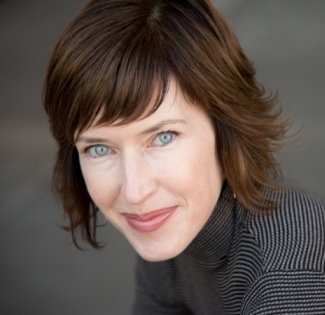 Lara Stemple, JD (Panel Moderator) serves as Assistant Dean for Graduate Studies and International Student Programs at UCLA Law, where she oversees the law school’s LL.M. (masters) and S.J.D. (doctoral) degree programs. She teaches and writes in the areas of gender, sexuality, and human rights, and her expertise focuses on issues related to sexual violence and sexual and reproductive health and rights. Stemple also serves as co-Vice Chair of the Executive Committee of the UC Global Health Institute and is a founding faculty member of its Center for Gender and Health Justice. She chairs the Advisory Board of All Survivors Project and founded the Southern California Legal Alliance for Reproductive Justice (SoCal LARJ) under the auspices of UCLA Law’s Center on Reproductive Health, Law, and Policy.
Lara Stemple, JD (Panel Moderator) serves as Assistant Dean for Graduate Studies and International Student Programs at UCLA Law, where she oversees the law school’s LL.M. (masters) and S.J.D. (doctoral) degree programs. She teaches and writes in the areas of gender, sexuality, and human rights, and her expertise focuses on issues related to sexual violence and sexual and reproductive health and rights. Stemple also serves as co-Vice Chair of the Executive Committee of the UC Global Health Institute and is a founding faculty member of its Center for Gender and Health Justice. She chairs the Advisory Board of All Survivors Project and founded the Southern California Legal Alliance for Reproductive Justice (SoCal LARJ) under the auspices of UCLA Law’s Center on Reproductive Health, Law, and Policy.
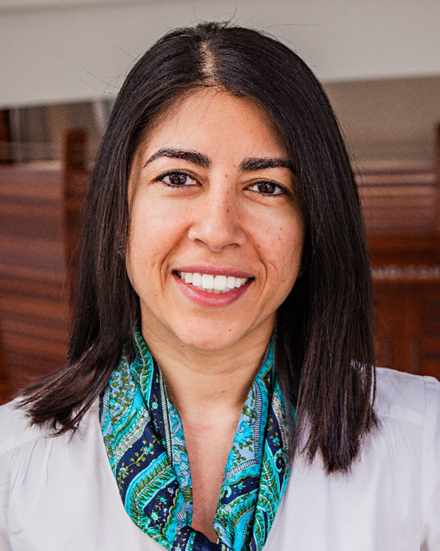
Ushma Upadhyay, PhD, MPH is Associate Professor at UCSF and a public health Social Scientist at Advancing New Standards in Reproductive Health (ANSIRH). She is also Co-Director of the University of California Global Health Institute’s Center for Gender & Health Justice. Dr. Upadhyay was born and raised near Boston, Massachusetts. As a person of South Asian descent, primarily raised by her mother who immigrated to the U.S. from Tanzania, she is drawn to reproductive health from a social justice perspective. Dr. Upadhyay has expertise in abortion safety, abortion access in the U.S., medication abortion, and state-level abortion restrictions. Her current research focuses on the safety, efficacy, and acceptability of telehealth for abortion care and how telehealth can increase reproductive equity. She has developed and validated two measures: the Reproductive Autonomy Scale and the Sexual and Reproductive Empowerment Scale for Adolescents and Young Adults, both of which researchers can use to quantitatively measure individual-level power in reproductive outcomes. She co-authored Family Planning: A Global Handbook for Providers, a Johns Hopkins/WHO/USAID publication. She earned a BA in Public Communication and International Studies from American University, her MPH from Columbia University, and her PhD from Johns Hopkins School of Public Health.
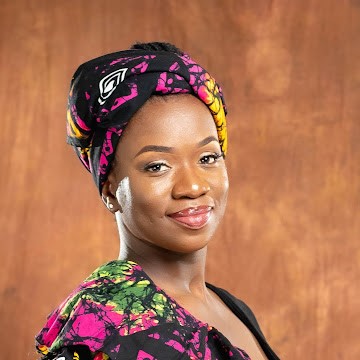
Luseshelo Simwinga Mumba is a state registered Nurse-Midwife and a Nurse midwife educator who obtained her Master of science in Nursing and Midwifery Education and a Bachelor of Science in nursing and midwifery at the University of Malawi- Kamuzu College of nursing (now Kamuzu University of Health Sciences (now KUHeS). she is a passionate midwife practitioner currently working as a Nurse-Midwife mentor and QI Lead for the Global Action In Nursing project being implemented by Global Aids Interfaith Alliance in Blantyre, Malawi-Africa. Before her current role, Luseshelo was working with the Ministry of Health- Malawi as a bedside midwife and midwife mentor for 10 years, she also coordinated safe motherhood programs and led MNH teams in Quality improvement projects. Aside from her work as a professional midwife and midwife educator, Luseshelo also finds passion in midwifery advocacy; voicing out for the voiceless, advocating for the provision of quality health services for pregnant women, their unborn babies and newborns. In her advocacy space, luseshelo has done a number of advocacy work in her country mainly through digital story telling.
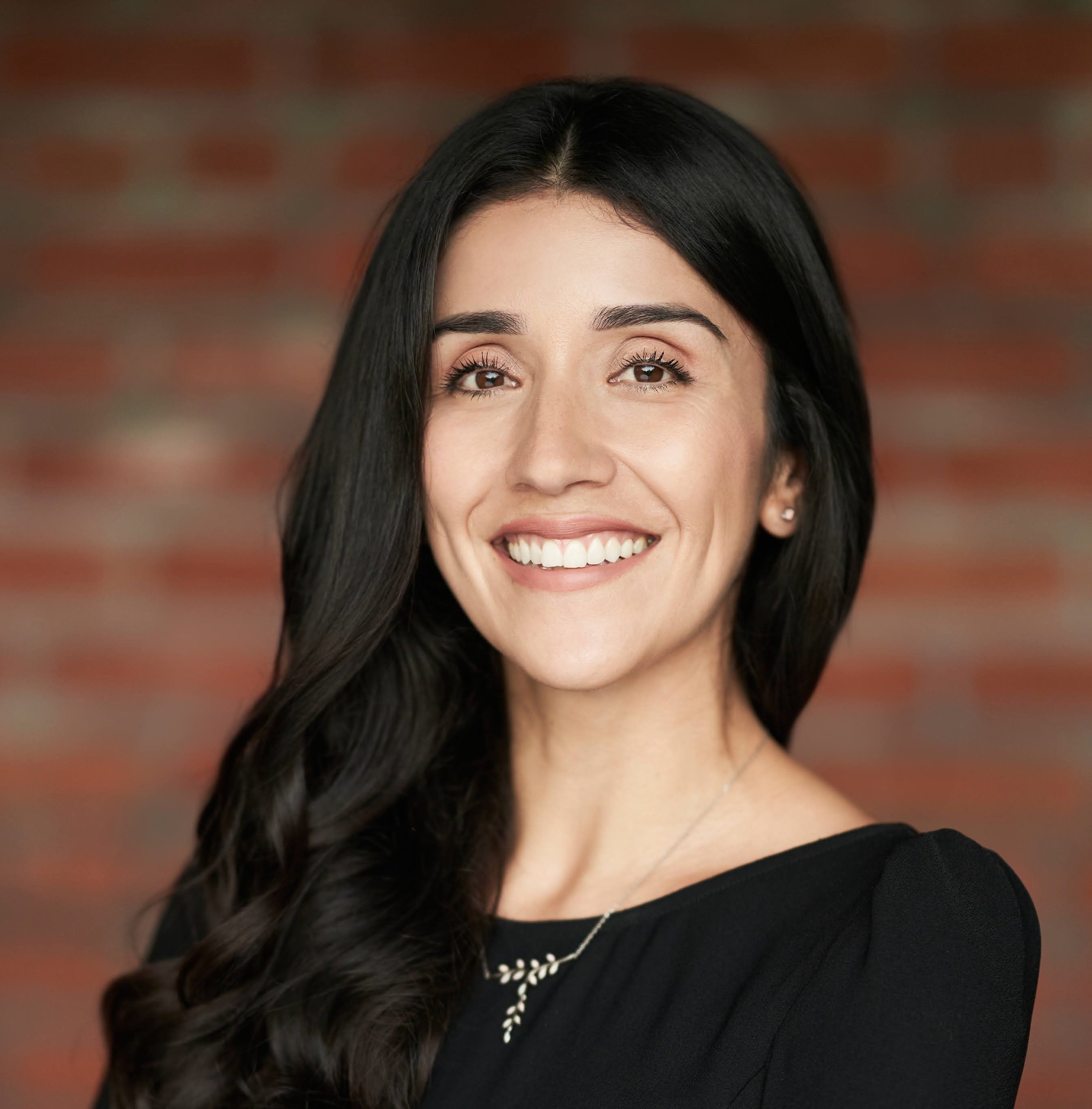
Monika Y. Langarica is a senior staff attorney with the Center for Immigration Law and Policy (CILP) at the UCLA School of Law. Monika has litigated cases and advanced advocacy challenging immigration confinement and exclusionary border policies, and in defense of humanitarian pathways. The daughter of Mexican immigrants who settled in San Diego, Monika was born and raised in the borderlands. Before joining CILP, Monika was the immigrants’ rights staff attorney at the ACLU of San Diego & Imperial Counties, where she pursued impact litigation, strategic direct representation, policy advocacy, and community education efforts in the border region. Prior to ACLU, Monika was a senior staff attorney with the ABA Immigration Justice Project of San Diego and served as an Equal Justice Works fellow at Centro Legal de la Raza in Oakland. Monika cofounded the Borderlands Get Free Fund, the first immigration bond fund established in the California border region and has served on the board of directors of the San Diego La Raza Lawyers’ Association Scholarship Fund and Borderlands for Equity.
Environmental Justice Panel
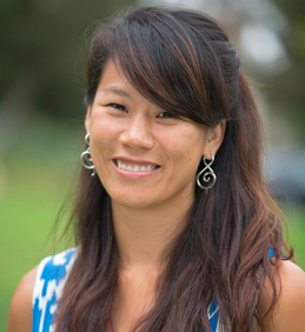 Samantha (Sam) Ying, PhD (Panel Moderator) is a professor in the Environmental Science Department at UC Riverside. She is passionate about her research, teaching, and engagement with her students and community. She is dedicated to empowering the disadvantaged and ensuring equity for all. Sam’s research and teaching focus on chemical and biological processes within soils that shape water quality, food security, and the global cycles of critical elements such as carbon and nitrogen. Her work seeks to provide soil and water management practices for a healthy and sustainable future while training the leaders of tomorrow. Sam received her B.S. from UC Santa Barbara and Ph.D. from Stanford University; she joined the UCR faculty in 2015.
Samantha (Sam) Ying, PhD (Panel Moderator) is a professor in the Environmental Science Department at UC Riverside. She is passionate about her research, teaching, and engagement with her students and community. She is dedicated to empowering the disadvantaged and ensuring equity for all. Sam’s research and teaching focus on chemical and biological processes within soils that shape water quality, food security, and the global cycles of critical elements such as carbon and nitrogen. Her work seeks to provide soil and water management practices for a healthy and sustainable future while training the leaders of tomorrow. Sam received her B.S. from UC Santa Barbara and Ph.D. from Stanford University; she joined the UCR faculty in 2015.
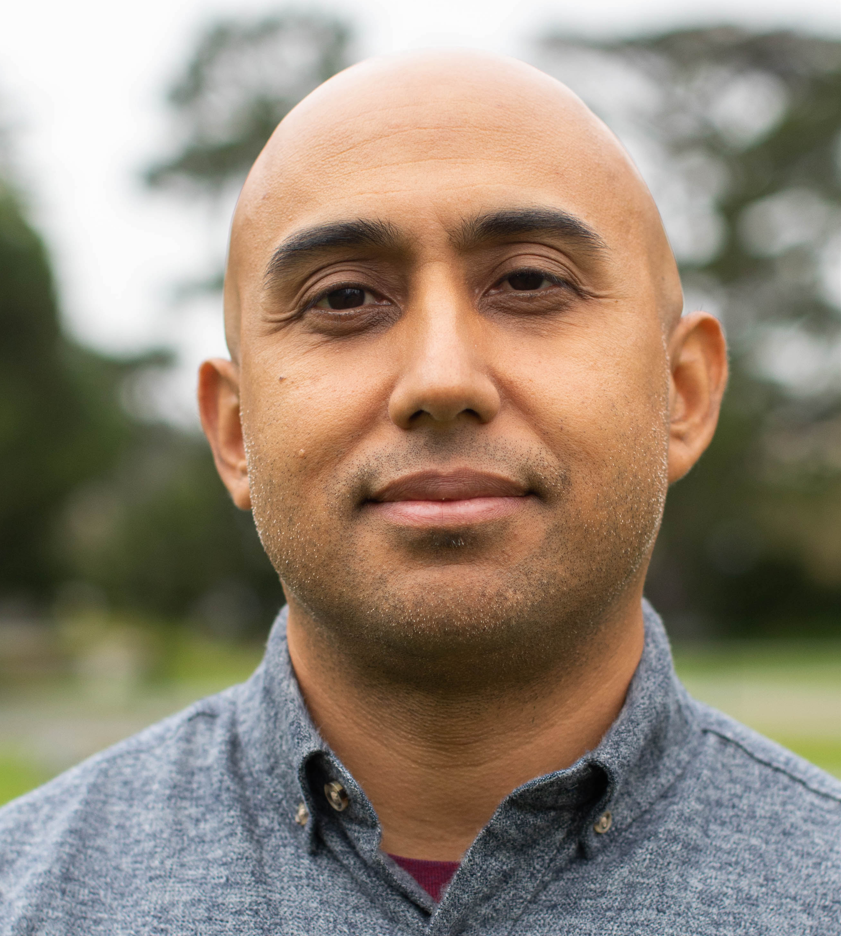 Carlos Martinez, MPH, PhD is an Assistant Professor in the Department of Latin American and Latino Studies and core faculty member of the Global and Community Health program at the University of California, Santa Cruz. Trained in public health and medical anthropology, Carlos’ research examines the health consequences and sociocultural implications of migrant policing, deportation, our fractured asylum system, environmental injustice, and the global War on Drugs. His primary research project has consisted of long-term ethnographic fieldwork examining how U.S. asylum deterrence and deportation policies have transformed the U.S.-Mexico borderland region into a zone of captivity for asylum seekers and Mexican deportees He is also involved with several community-engaged and interdisciplinary research projects in Tijuana, the Bay Area, and the Santa Cruz area focused on the health-related impacts of environmental injustice, climate change, and punitive drug policy on Latinx communities. His research and advocacy are aimed at promoting health and social justice among migrants, asylum seekers, deportees, substance users, and other marginalized groups.
Carlos Martinez, MPH, PhD is an Assistant Professor in the Department of Latin American and Latino Studies and core faculty member of the Global and Community Health program at the University of California, Santa Cruz. Trained in public health and medical anthropology, Carlos’ research examines the health consequences and sociocultural implications of migrant policing, deportation, our fractured asylum system, environmental injustice, and the global War on Drugs. His primary research project has consisted of long-term ethnographic fieldwork examining how U.S. asylum deterrence and deportation policies have transformed the U.S.-Mexico borderland region into a zone of captivity for asylum seekers and Mexican deportees He is also involved with several community-engaged and interdisciplinary research projects in Tijuana, the Bay Area, and the Santa Cruz area focused on the health-related impacts of environmental injustice, climate change, and punitive drug policy on Latinx communities. His research and advocacy are aimed at promoting health and social justice among migrants, asylum seekers, deportees, substance users, and other marginalized groups.
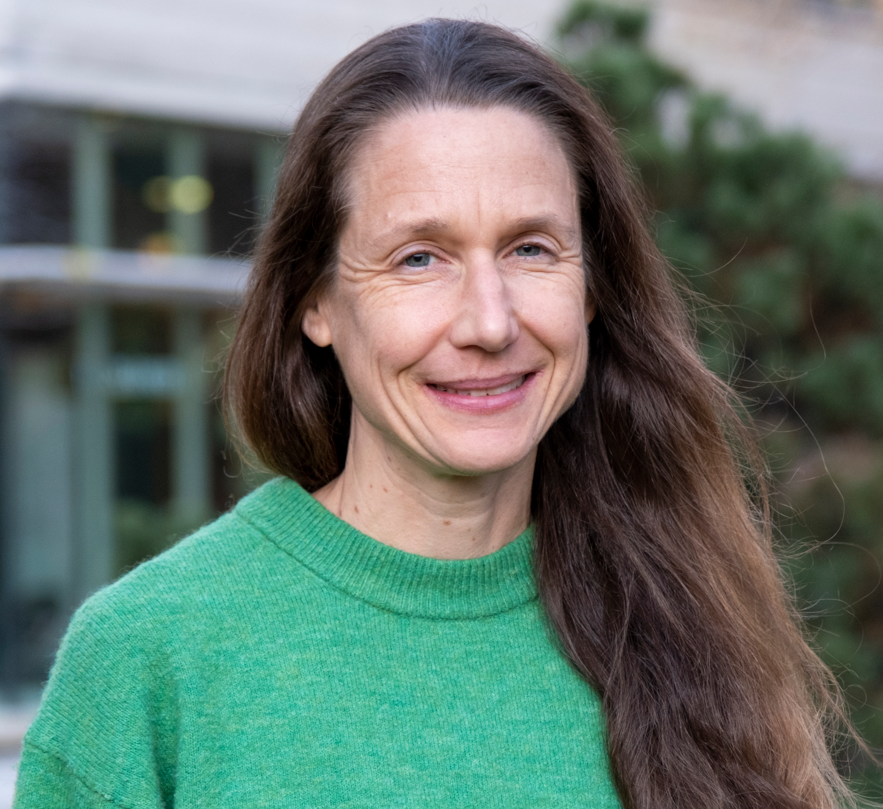 Amber Roegner, DVM, PhD recently started as an Assistant Professor of One Health and Environmental Toxicology at School of Environmental Sustainability at Loyola University-Chicago and as an Institute for Racial Justice Faculty Affiliate. After pursuing an undergraduate degree in Environmental (Chemical) Engineering from Yale University in 2002, she worked in environmental remediation and consulting for several years on air, soil, and water projects. Evident disparities in and consequences for the health of vulnerable human and animal populations from environmental pollution and contamination motivated her to return to school for both veterinary medicine and toxicology. She graduated in 2014 from the combined Veterinary Scientist in Training Program (VSTP) at the University of California, Davis, School of Veterinary Medicine with a degree in Veterinary Medicine (DVM) and PhD (Pharmacology and Toxicology). She has worked over the last decade both as a veterinarian within nonprofit, laboratory, fisheries, and mobile medicine, as well as gaining postdoctoral research experience in global health, environmental toxicology, mechanistic toxicology, and environmental health, including as a as a NCRR Veterinary Trainee in Aquatic Models in Biomedical Research and as a University of California Global Health Institute Fellow in Kenya. She seeks to address global environmental health and toxicological inequities through community-engaged work to improve human, animal, and ecological health outcomes with sustainable and mechanism-based interventions. Through highly collaborative work she has examined chronic health risks from eutrophication and freshwater algal blooms on fisher and indigenous communities, through partnerships in Kenya, Guatemala, and Uruguay. Certified in veterinary acupuncture, she believes in a holistic approach to health & well-being for animals and human beings that starts at the community level.
Amber Roegner, DVM, PhD recently started as an Assistant Professor of One Health and Environmental Toxicology at School of Environmental Sustainability at Loyola University-Chicago and as an Institute for Racial Justice Faculty Affiliate. After pursuing an undergraduate degree in Environmental (Chemical) Engineering from Yale University in 2002, she worked in environmental remediation and consulting for several years on air, soil, and water projects. Evident disparities in and consequences for the health of vulnerable human and animal populations from environmental pollution and contamination motivated her to return to school for both veterinary medicine and toxicology. She graduated in 2014 from the combined Veterinary Scientist in Training Program (VSTP) at the University of California, Davis, School of Veterinary Medicine with a degree in Veterinary Medicine (DVM) and PhD (Pharmacology and Toxicology). She has worked over the last decade both as a veterinarian within nonprofit, laboratory, fisheries, and mobile medicine, as well as gaining postdoctoral research experience in global health, environmental toxicology, mechanistic toxicology, and environmental health, including as a as a NCRR Veterinary Trainee in Aquatic Models in Biomedical Research and as a University of California Global Health Institute Fellow in Kenya. She seeks to address global environmental health and toxicological inequities through community-engaged work to improve human, animal, and ecological health outcomes with sustainable and mechanism-based interventions. Through highly collaborative work she has examined chronic health risks from eutrophication and freshwater algal blooms on fisher and indigenous communities, through partnerships in Kenya, Guatemala, and Uruguay. Certified in veterinary acupuncture, she believes in a holistic approach to health & well-being for animals and human beings that starts at the community level.
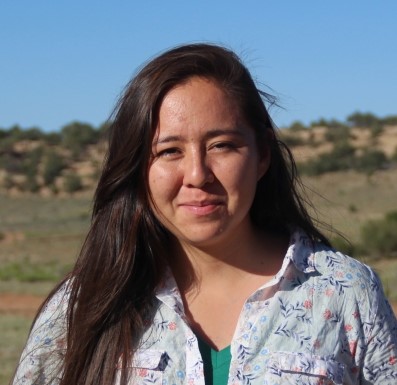 Jessica Keetso is Diné (Navajo) from the Black Mesa region on the Navajo Nation. She has been a Community Organizer with Tó Nizhóní Ání (Sacred Water Speaks) since 2017. Jessica received her bachelor’s in environmental science from Northern Arizona University. She has spent most of her professional career working for and with her people at the local level in the areas of watershed planning, renewable energy development, environmental justice, reclamation, food sovereignty, and water protection. Her current work is focused on all things energy on the Navajo Nation and exploring ways to incorporate equity, energy democracy and just transition strategies into energy policy.
Jessica Keetso is Diné (Navajo) from the Black Mesa region on the Navajo Nation. She has been a Community Organizer with Tó Nizhóní Ání (Sacred Water Speaks) since 2017. Jessica received her bachelor’s in environmental science from Northern Arizona University. She has spent most of her professional career working for and with her people at the local level in the areas of watershed planning, renewable energy development, environmental justice, reclamation, food sovereignty, and water protection. Her current work is focused on all things energy on the Navajo Nation and exploring ways to incorporate equity, energy democracy and just transition strategies into energy policy.
Lightning Presentations
Lightning Presentation #1: An Indigenous Perspective on Big Data and Emerging Technologies
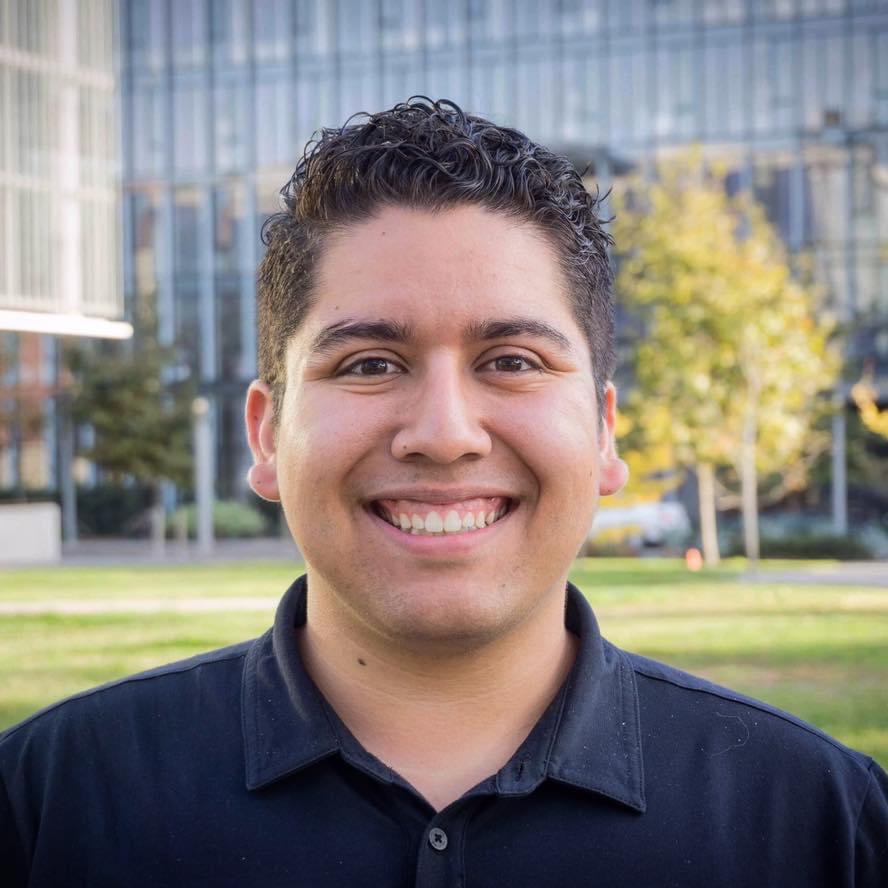 Alec Calac is an MD/PhD candidate in the UC San Diego Medical Scientist Training Program and UCSD-SDSU Joint Doctoral Program in Public Health. He is a member of the Pauma Band of Luiseño Indians and a passionate advocate for Indigenous health equity. He works collaboratively with the Global Health Policy and Data Institute on research projects that synthesize health policy, Tribal public health, digital health, and research ethics. He is the former National President of the Association of Native American Medical Students and a 2022 National Minority Quality Forum 40 Under 40 Leader in Minority Health.
Alec Calac is an MD/PhD candidate in the UC San Diego Medical Scientist Training Program and UCSD-SDSU Joint Doctoral Program in Public Health. He is a member of the Pauma Band of Luiseño Indians and a passionate advocate for Indigenous health equity. He works collaboratively with the Global Health Policy and Data Institute on research projects that synthesize health policy, Tribal public health, digital health, and research ethics. He is the former National President of the Association of Native American Medical Students and a 2022 National Minority Quality Forum 40 Under 40 Leader in Minority Health.
Lightning Presentation #2: Unveiling Achievements and Charting Future Goals at the Center for Food Justice and Health Equity
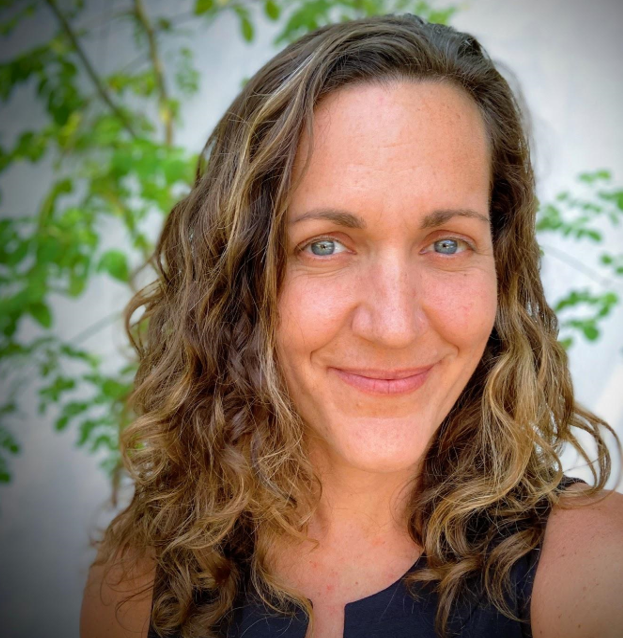 Carrie Waterman, PhD is an interdisciplinary research scientist and consultant at the intersection of nutrition, agriculture, health, and development. She received her Ph.D. in Pharmacognosy and spent the following years studying plant medicine as a postdoc in Natural Products Chemistry. She was a Fulbright Scholar at the University of Nairobi, Kenya, and served as a Peace Corps volunteer in West Africa. She was an Associate Professional Researcher with the Institute for Global Nutrition at UC Davis and the UC Global Health Institute affiliated Center Director on Food Justice and Health Equity. She further developed the content of the Center’s work into a First-year Seminar and “Quarter at Aggie Square” internship and community engagement programs at UC Davis. Her research, funded by NIH Fogarty International, USAID, USDA, UC, and UC Davis Global Affairs, has focused on using Moringa oleifera (moringa) to prevent chronic diseases including diabetes and obesity. She was recently funded by a USDA grant to promote moringa production, consumption, utilization, and sales within the CA food system. She works closely with universities, farmers and businesses within the US and abroad to advance to UN Sustainable Development Goals. Her work involves community outreach, capacity building, scientific research, social equity, and sustainable development. Her passion and business aim is to bring awareness and utilization of “smart crops” to address social, environmental, and economic improvements to the livelihoods and communities of those underserved and underrepresented.
Carrie Waterman, PhD is an interdisciplinary research scientist and consultant at the intersection of nutrition, agriculture, health, and development. She received her Ph.D. in Pharmacognosy and spent the following years studying plant medicine as a postdoc in Natural Products Chemistry. She was a Fulbright Scholar at the University of Nairobi, Kenya, and served as a Peace Corps volunteer in West Africa. She was an Associate Professional Researcher with the Institute for Global Nutrition at UC Davis and the UC Global Health Institute affiliated Center Director on Food Justice and Health Equity. She further developed the content of the Center’s work into a First-year Seminar and “Quarter at Aggie Square” internship and community engagement programs at UC Davis. Her research, funded by NIH Fogarty International, USAID, USDA, UC, and UC Davis Global Affairs, has focused on using Moringa oleifera (moringa) to prevent chronic diseases including diabetes and obesity. She was recently funded by a USDA grant to promote moringa production, consumption, utilization, and sales within the CA food system. She works closely with universities, farmers and businesses within the US and abroad to advance to UN Sustainable Development Goals. Her work involves community outreach, capacity building, scientific research, social equity, and sustainable development. Her passion and business aim is to bring awareness and utilization of “smart crops” to address social, environmental, and economic improvements to the livelihoods and communities of those underserved and underrepresented.
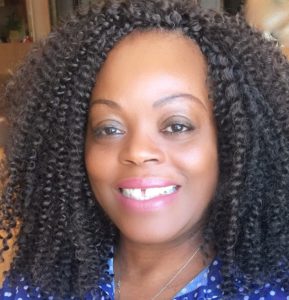 Cheryl A. Branch is a native of Southern California and has spent the past 30 years of her life improving the quality-of-life in communities of color. She has participated in local, state and federal projects directed at increasing the distribution of culturally competent health services, economic development policy, education/training opportunities, civic and funding resources in urban communities. Cheryl is a professional administrator and is skilled in organization development, data collection and analysis, problem solving, crisis management, public relations, financial management, planning, controlling and directing an organization’s resources in order to achieve the objectives of that organization. Cheryl is public sector trained & experienced in public policy formation, government relations, strategic planning, external relations, leadership development, & mergers. Cheryl has been executive director of three successful non-profit organizations, and she owns three small businesses in Los Angeles. While playing a pivotal role in bridging policy and service in California, Cheryl’s passion for minority empowerment has remained high. Cheryl was educated in Europe at Cambridge University in England, U.S.C. undergraduate in Public Administration and holds a Master of Science Degree in Community Economic Development from Southern New Hampshire University. Cheryl is one of the most recognized urban planning strategists, addiction and behavioral health policy practitioners in the country; establishing levels of corporate, public, ecumenical, community and private participation that is modeled nationwide. Cheryl works with Dr. Carrie Waterman as the Center Manager for the Center for Food Justice and Health Equity.
Cheryl A. Branch is a native of Southern California and has spent the past 30 years of her life improving the quality-of-life in communities of color. She has participated in local, state and federal projects directed at increasing the distribution of culturally competent health services, economic development policy, education/training opportunities, civic and funding resources in urban communities. Cheryl is a professional administrator and is skilled in organization development, data collection and analysis, problem solving, crisis management, public relations, financial management, planning, controlling and directing an organization’s resources in order to achieve the objectives of that organization. Cheryl is public sector trained & experienced in public policy formation, government relations, strategic planning, external relations, leadership development, & mergers. Cheryl has been executive director of three successful non-profit organizations, and she owns three small businesses in Los Angeles. While playing a pivotal role in bridging policy and service in California, Cheryl’s passion for minority empowerment has remained high. Cheryl was educated in Europe at Cambridge University in England, U.S.C. undergraduate in Public Administration and holds a Master of Science Degree in Community Economic Development from Southern New Hampshire University. Cheryl is one of the most recognized urban planning strategists, addiction and behavioral health policy practitioners in the country; establishing levels of corporate, public, ecumenical, community and private participation that is modeled nationwide. Cheryl works with Dr. Carrie Waterman as the Center Manager for the Center for Food Justice and Health Equity.
Opening Plenary will include a poetry reading by Jacob Virges
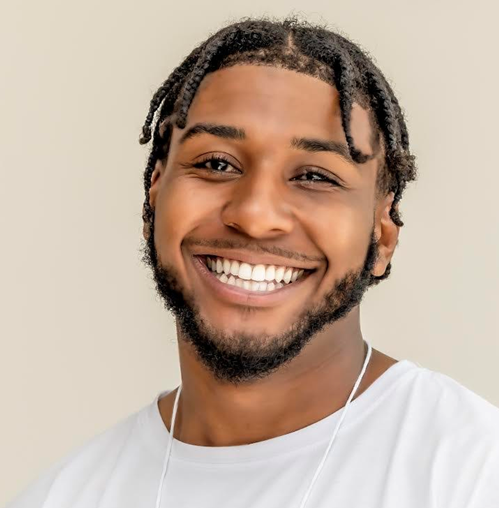
Jacob Virges is a passionate and dedicated Community Leader and Spoken Word Artist. Through the gift of creative expression and community activism, he uses his talents and time to bring more attention to youth voices as well as speak out against the many injustices in the System. He is no stranger to working in community as he has worked with a few non-profits over the years (One East Palo Alto, Live and Peace and Jobtrain) and currently works with Urban Strategies Council to help amplify the voice of the community through Oakland General Plan. Most importantly his purpose is to help guide his peers and the people around him to discover their purpose and how their voice, along with action, can change the environment around them.
